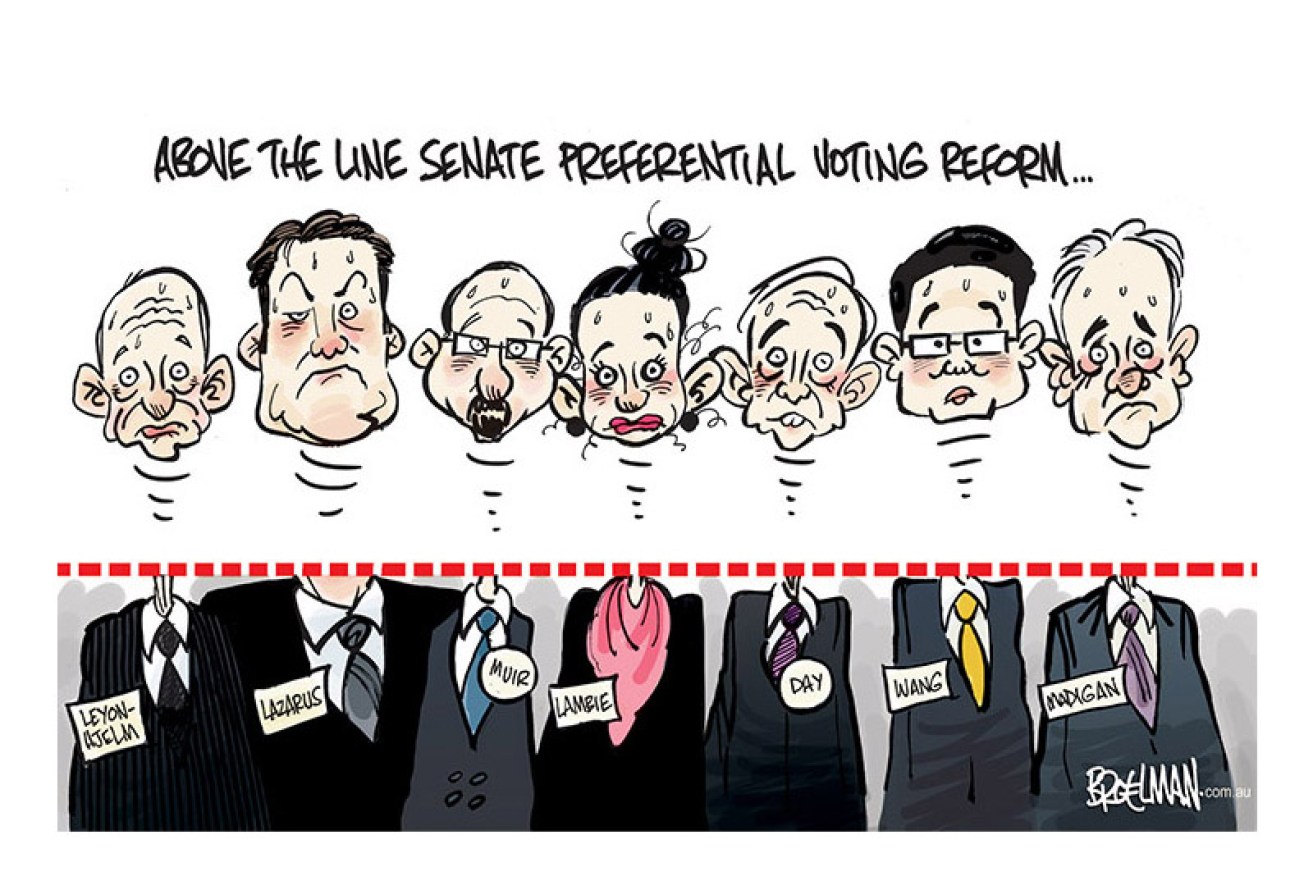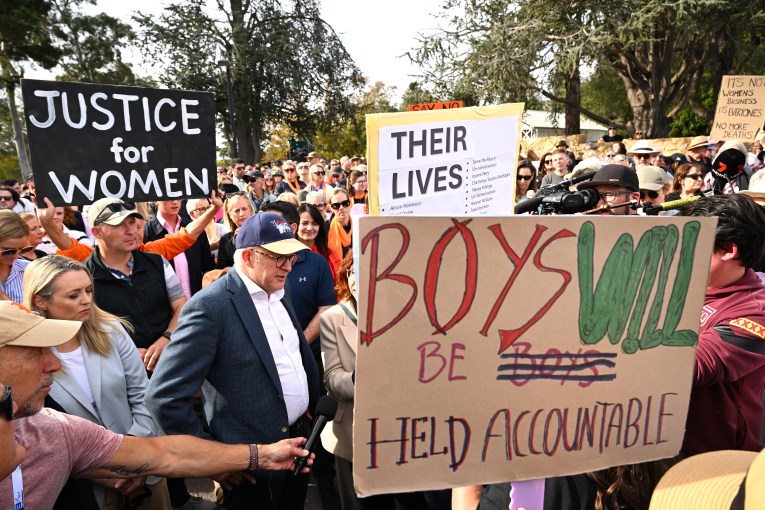Senate voting changes aim to ‘fix’ system

Peter Broelman
Smaller political parties say they will be wiped out by the federal government’s proposed changes to Senate voting.
The legislation to overhaul the way Australians vote for senators has been introduced into Parliament House on Monday.
Prime Minister Malcolm Turnbull announced the changes, which are designed to make it harder for crossbenchers to get elected if they have a tiny proportion of the vote.
• PM announces Senate voting changes
• Newspoll puts Labor level with Coalition
• Medibank boss defends health insurance rebate
• Superannuation freeze fears leave workers cold
Mr Turnbull said the legislation included the option of preferential voting above the line, meaning that voters could number up to six boxes and have their vote counted as formal.
The legislation will also propose:
• Reducing the number of informal votes when voting below the line by increasing the number of allowable “mistakes” from three to five
• The abolition of group and individual voting tickets
• Allowing political parties (at their discretion) to have their logo included on the ballot paper

Liberal Democrat Senator David Leyonhjelm is one of the major critics of the changes. Photo: ABC
Mr Turnbull said the current system had been taken advantage of.
“The last Senate election was widely criticised,” he said.
“Australians were astonished to see people elected to the Senate whose primary votes were a fraction, in the case of one senator from Victoria, about half of 1 per cent of the vote.”
But Liberal Democrat senator David Leyonhjelm says the changes will make it almost impossible for so-called “micro parties” to win a seat.
“For the government to do a dirty little deal with the Greens and Nick Xenophon was a surprise and very disappointing,” Senator Leyonjhelm said.
“The end result, the bottom line of this proposal, is that it will be extraordinarily difficult, if not impossible, for the minor parties to ever win seats again in the Senate.
“The end result will be 25 per cent of voters who prefer a minor party – those 25 per cent of voters are basically going to be disenfranchised, those parties they vote for are not going to get a chance to win a seat.”
ABC election analyst @AntonyGreenABC breaks down the govt’s plans to change Senate voting rules, and he has props https://t.co/lLlKOGT9mu
— Anna Henderson (@annajhenderson) February 22, 2016
Greens likely to benefit
The announcement has been welcomed by the Greens, who are likely to benefit from the extermination of smaller contenders for the balance of power in the Senate.
Greens leader Richard Di Natale said his party had been putting forward legislation for similar reform for more than a decade.
“The only people who support the current system are the faceless men and factional operators who can wield power and influence in back rooms,” he said.

Greens Leader Richard di Natale had been campaigning for the voting changes.
“We will be looking very closely at this bill through the inquiry process to ensure it achieves the goal of putting power back in the hands of voters.”
Labor split on changes
The proposals have caused division within the ALP.
Labor Senator Sam Dastyari on Monday morning called for care when “racing through” reform.
Citing internal Labor analysis, Senator Dastyari said the changes would lead to a significant boost in informal voting.
“We’re talking about first generation migrants, people who are already disenfranchised … This is a policy that will harm and hurt the most vulnerable people in our society.”
But Federal Labor MP Gary Gray, who was heavily involved in the committee that drafted the changes, said Senator Dastyari was wrong and the legislation contained provisions to protect people’s votes.
“There’s what’s called a vote-saving provision, so if it’s clear you intended to vote for a particular candidate or party then in fact that vote still stands,” Mr Gray said.
“So Sam’s information is entirely wrong and he should have waited to see the bill, the legislation and the explanatory memorandum that goes with it, before he understood the content of the bill.”
Mr Gray said his party needed to carefully consider the details but on the face of it, the bill was something the “entire Parliament should be ensuring passes”.
ABC election analyst Anthony Green said the legislation, if passed, meant the smaller parties would not be able to direct preferences to each other.
“They will not be able to do the preference harvesting they have done in the past,” he said.
“They might all stand again [but] the more candidates that stand, the less chance the little parties have of being elected.”
-ABC









